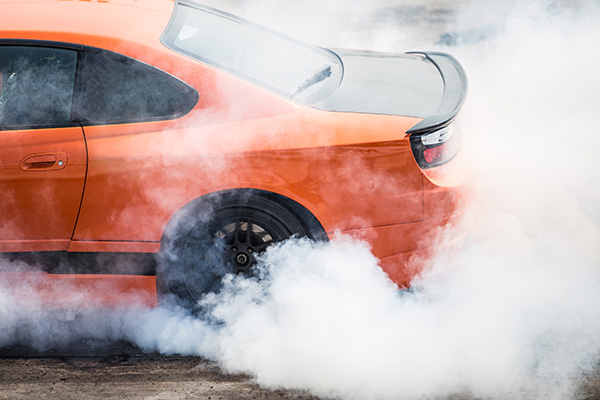
BMW vehicles are known for their luxury, performance, and engineering excellence. However, like all cars, they can face specific issues over time, especially if not maintained properly. While BMWs often offer a thrilling driving experience, certain problems are more common than others. If you own a BMW or are considering purchasing one, understanding these common issues and knowing how to prevent them can save you a lot of time, frustration, and money down the road.
1. Electrical Problems
Electrical issues are one of the most frequently reported problems by BMW owners. These can manifest as malfunctioning windows, lighting issues, or dashboard warning lights coming on for no apparent reason. The sophisticated electronics that power a BMW can sometimes be prone to failure, especially as the vehicle ages.
How to Avoid It
Regular checks of the car's electrical system can help. Address any warning lights immediately and ensure that the battery is in good condition. Consider seeking professional diagnostics if something feels off.
2. Oil Leaks
BMW vehicles, especially older models, are known for oil leaks. This is often due to worn-out gaskets, seals, or oil pans. Common places for leaks include the valve cover gasket and the oil filter housing.
How to Avoid It
Regular oil changes and inspections can help you catch potential issues early. Have your BMW checked for leaks during routine maintenance and replace gaskets as needed to avoid more extensive engine damage.
3. Cooling System Failures
The cooling system is crucial for keeping your engine from overheating, but it's a well-known weak point in many BMW models. The radiator, water pump, and thermostat are especially prone to issues, which can lead to engine overheating if not addressed quickly.
How to Avoid It
Replace the coolant regularly and have your cooling system inspected, especially as your car ages. If your car is running hot, don't ignore the warning signs—get it checked immediately.
4. Suspension Problems
The BMW's suspension provides a smooth ride, but it can wear out over time, especially in models with sport-tuned suspensions. Common problems include worn-out control arm bushings, which lead to poor handling or even strange noises when driving over bumps.
How to Avoid It
Regularly inspect your suspension components, especially the control arm bushings and shock absorbers. Address any signs of wear early, such as changes in ride comfort or odd noises.
5. Fuel Pump Failures
High-pressure fuel pump (HPFP) failure is a well-documented issue, particularly with BMW’s turbocharged engines. If your fuel pump fails, your car may hesitate to start, or you may experience power loss during acceleration.
How to Avoid It
Always use high-quality fuel, and if you notice your car struggling to start or losing power, have your fuel system inspected. Catching the problem early can prevent a total pump failure.
6. Transmission Problems
BMW transmissions are generally reliable, but some models, especially the automatic ones, have been known to experience issues with hard shifting or failure over time. The transmission can develop fluid leaks or suffer from software-related malfunctions.
How to Avoid It
Regular transmission fluid checks and changes can go a long way in maintaining a healthy transmission. If you experience rough shifting or slipping, it’s time to visit a BMW specialist.
7. Steering Wheel Vibrations
Many BMW owners report steering wheel vibrations at certain speeds. This issue is often linked to problems with the suspension, worn-out tires, or misaligned wheels. While it may start as a minor annoyance, vibrations can lead to more severe problems with your tires and suspension if not addressed.
How to Avoid It
Ensure your tires are regularly rotated, balanced, and properly inflated. Having your wheel alignment checked during routine maintenance can also prevent these vibrations.
8. Carbon Build-Up in the Engine
Carbon build-up is a known issue in direct-injection engines, which are common in BMWs. Over time, carbon deposits can accumulate in the engine’s intake valves, leading to poor performance, rough idling, or even misfires.
How to Avoid It
Use high-quality fuel and consider having your engine cleaned periodically. Regular engine maintenance can help reduce the risk of carbon build-up and keep your car running at peak performance.
9. Timing Chain Issues
Timing chain failure can be a catastrophic issue, especially in models like the BMW N20 and N26 engines. When the timing chain stretches or breaks, it can lead to engine failure, leaving you with an expensive repair bill.
How to Avoid It
Check the engine regularly for unusual noises, such as rattling sounds. Have your timing chain inspected at recommended intervals, and if necessary, replace it before it becomes a bigger problem.
10. HVAC Blower Motor Resistor Failure
The HVAC blower motor resistor regulates the fan speed in your car’s heating and cooling system. In many BMW models, this component can fail, causing the fan to stop working entirely or operate at only one speed.
How to Avoid It
If you notice problems with your HVAC system, such as the fan not working correctly or only functioning on one setting, have the blower motor resistor checked and replaced if necessary.
Is your BMW showing signs of wear? Complete Car Care Encinitas offers tailored services to address any issues before they become costly repairs. Contact us today for a thorough inspection and keep your BMW performing at its best!